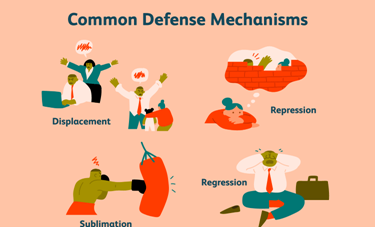A nurse Observes a client who has OCD repeatedly applying, removing, and then reapplying makeup. The nurse identifies that repetitive behavior in a client who has OCD is due to which of the following underlying reasons?
Select one:
Adverse effect of antidepressant medication
Attempt to reduce anxiety
Narcissistic behavior
Fear of rejection from staff
The Correct Answer is B
Repetitive behaviors in individuals with OCD are often compulsions that are performed in an attempt to reduce anxiety or distress. These compulsions can take many forms, including repetitive actions such as applying and removing makeup. By engaging in these behaviors, the individual may feel a temporary reduction in anxiety or distress.
Nursing Test Bank
Naxlex Comprehensive Predictor Exams
Related Questions
Correct Answer is D
Explanation
This client is experiencing auditory hallucinations and may be at risk for self-harm or suicide. The nurse should prioritize visiting this client first to assess their safety and provide appropriate interventions.
Option a. A client who recently burned her arm by accident while using a hot iron at home may require wound care and education on safety, but this situation is not as urgent as the client experiencing auditory hallucinations.
Option b. A client who tells the nurse he experienced manifestations of severe anxiety before and during a job interview may benefit from interventions to manage anxiety, but this situation is not as urgent as the client experiencing auditory hallucinations.
Option c. A client who requests that her antipsychotic medication be changed due to some new adverse effects may require medication adjustment and monitoring for side effects, but this situation is not as urgent as the client experiencing auditory hallucinations.
Correct Answer is A
Explanation
Denial is a defense mechanism where an individual refuses to accept or acknowledge the existence of a problem or a reality that causes anxiety or distress. In this scenario, the client is denying that their coughing is related to their lung cancer, and instead attributing it to a common cold that everyone is getting. This denial may be a way for the client to avoid facing the reality of their illness and the potential consequences of smoking.
Option b, reaction formation, is a defense mechanism where an individual expresses feelings or behaviors that are the opposite of their true feelings to reduce anxiety.
Option c, sublimation, is a defense mechanism where an individual channels their unacceptable impulses into more acceptable or socially appropriate behaviors.
Option d, suppression, is a defense mechanism where an individual consciously pushes down or avoids their thoughts or feelings. None of these defense mechanisms are being exhibited in the scenario described.

Whether you are a student looking to ace your exams or a practicing nurse seeking to enhance your expertise , our nursing education contents will empower you with the confidence and competence to make a difference in the lives of patients and become a respected leader in the healthcare field.
Visit Naxlex, invest in your future and unlock endless possibilities with our unparalleled nursing education contents today
Report Wrong Answer on the Current Question
Do you disagree with the answer? If yes, what is your expected answer? Explain.
Kindly be descriptive with the issue you are facing.
